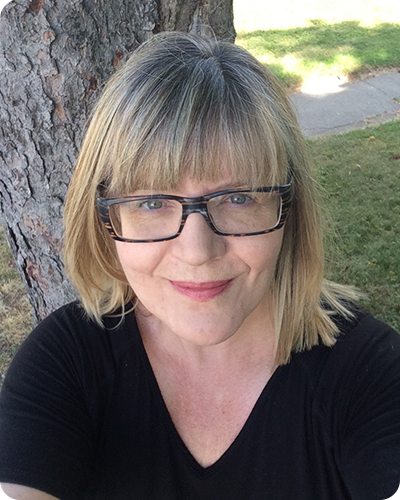DIY Obits

Subscribe to Catalyst
Subscribe to get our magazine delivered right to your inbox
Related Articles
Subscribe to Catalyst
Subscribe to get our magazine delivered right to your inbox
Related Articles
Writing your end-of-life story has therapeutic effects. The art of getting to the end.
The obituary — a written announcement of a person’s death, including biographical details — has been with us for centuries.
The sombre, even forbidding word, from the medieval Latin obituarius, was first used in 1703, according to the Merriam-Webster dictionary. Over the years since, it has become common practice for a family member or friend to write such a notice for a loved one who has died. While never a happy task or one to be taken lightly, it has become so customary that the best obituaries are collected in books. Besides that the funeral industry now provides how-to advice and templates, news organizations pre-write them for the famous, ghostwriters will write one for you — and increasing numbers of people are writing their own.
Some irreverent, self-written obituaries, after being appreciated by complete strangers for their refreshing candour about personal failings, family conflict, and mental illness, have gone viral. One of them, from Angus Macdonald of Glace Bay, Nova Scotia, is also now listed for its poignancy and humour under “Funny Obituaries” on Legacy.com. “I think I was a pretty nice guy, despite being a former punk and despite what some people would say about me,” he recounted in the obituary he wrote before his death at age 67 in 2016. “What did they know about me anyway? I loved my family and cared for them through good times and bad; I did my best.”
As they face death, some autobiographical scribes are motivated by a wish to set the record straight, settle scores, or comfort those left behind, with honesty, humour, and courage. They may also see it as an opportunity to reflect on the entirety of their lives — the triumphs and accomplishments, failings and regrets, lessons learned, and in the mind of the writer at least, a chance to leave behind words of wisdom worth preserving. Those who know they are close to the end may gain valuable perspective from writing authentically about their lives and, in the process, find a way to accept and be at peace with the inevitable.
An examined life
Now, therapists, counsellors, and writing coaches are seeing the mental health benefits of asking clients to write their own obituary, regardless of age or how much life they have left.
While some might find the idea morbid, it’s gaining popularity as a therapeutic exercise in self-examination and as a way to help clarify important issues that we all face as we go through life.
We may have a hard time facing our own mortality, but thinking about what we’d want in our obituary when we die, experts say, might lead to a better, happier, and more meaningful and productive life. It’s worth noting that obire, the Latin root word of “obituary,” means “go toward” or “go to meet.”
“Sometimes people will do this exercise and stop and look at their lives and say, ‘I’m actually living a life that is completely opposite to what I want to be remembered for,’” says Talia Akerman, a licensed mental health counsellor working with Humantold, a group practice based in New York City. Most of Akerman’s clients are in their early 20s, dealing with depression, anxiety, and trauma and searching for answers to life’s big questions as they try to heal from painful experiences and build their adult lives.
In the context of existential therapy, based largely on ideas developed by renowned psychiatrist Viktor Frankl in the early 20th century, writing an obituary for yourself is a means of exploring how to find genuine, self-determined meaning and purpose. “It forces you to hold up a mirror to your life, your actions, your values, the people around you,” says Akerman. “It gives you a very intense moment to say, ‘This is not what I want for myself. Let me change that.’ And then, I’ll ask, ‘What are the common themes in this obituary? If you need to make a change, how do you go about that?’” On the other hand, she says, a person might find they are more on track than they realized after writing down an account of their life.
For someone dealing with depression, it’s an opportunity to work with a therapist on boosting self-esteem, reconnecting with the good, and finding hope for the future. “It’s reminding them of the strengths they have, and it is very beneficial. Other times with depression, or whatever mental health issue you might be experiencing, it’s a little harder, and that person might not be at the point where they’re ready to see that,” says Akerman. “This is where I think a good therapist comes into play. You need to be the person instilling hope in somebody before they’re ready to metaphorically grab the hope from your hands and hold it for themselves.”
It may also help a person to go back to the obituary in later months or years to see how their lives have changed, for better or for worse, and reflect again on what path they really want to take. “I will have them keep it somewhere, and if they don’t want to keep it because it’s a little too jarring, I’ll keep it somewhere safe and private for them, and we can revisit that,” says Akerman. “They can ask themselves, ‘Have I made the changes I want, or am I in the same place? And if I’m in the same place, why am I here?’”
Changes in direction
During the pandemic, so many people were forced to “pivot” in their choices of employment or deal with all kinds of losses that in some cases led to mental health crises, Akerman says, which made obituary writing an even more relevant exercise for her clients.
“I think this tool was really helpful during COVID. People could say, ‘I can’t control everything on a social level, but I can look at what I want to do with my life, look at my values, and what I care about and figure out, do I need to change anything professionally or relationally?”
Whether young or old, close to or far from death, reflecting on the lives we’ve led, are now living, or will lead clearly has benefits — from finding peace to changing directions to simply appreciating who and where we are and what we’ve accomplished or would still like to before the end.
Resource: Sharing Your Story Safely
Related reading:

Moira Farr
An award-winning journalist, author, and instructor, with degrees from Ryerson and the University of Toronto. Her writing has appeared in The Walrus, Canadian Geographic, Chatelaine, The Globe and Mail and more, covering topics like the environment, mental health, and gender issues. When she’s not teaching or editing, Moira freelances as a writer, having also served as a faculty editor in the Literary Journalism Program at The Banff Centre for the Arts.




